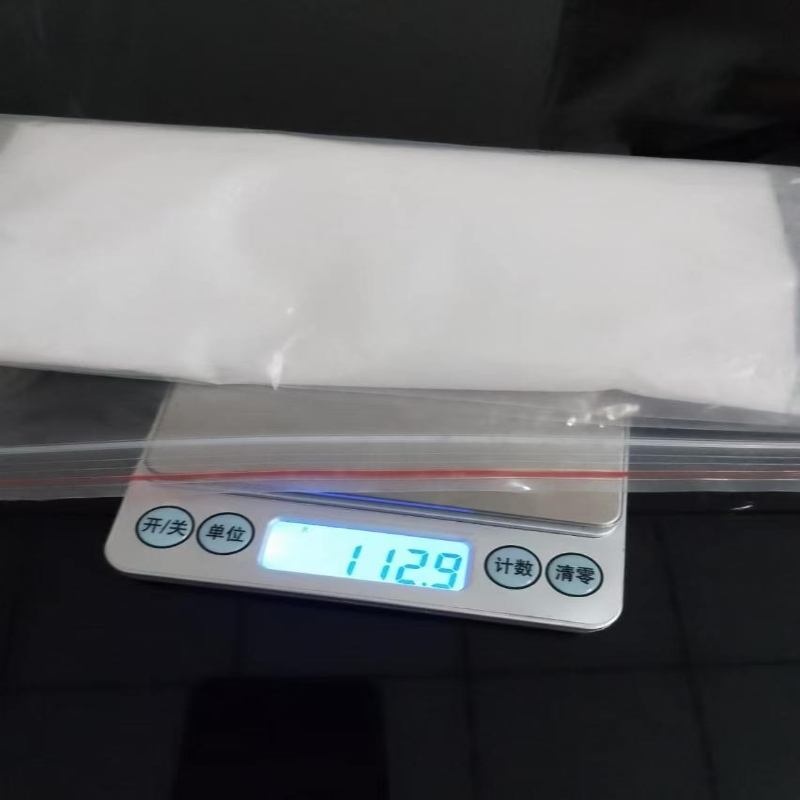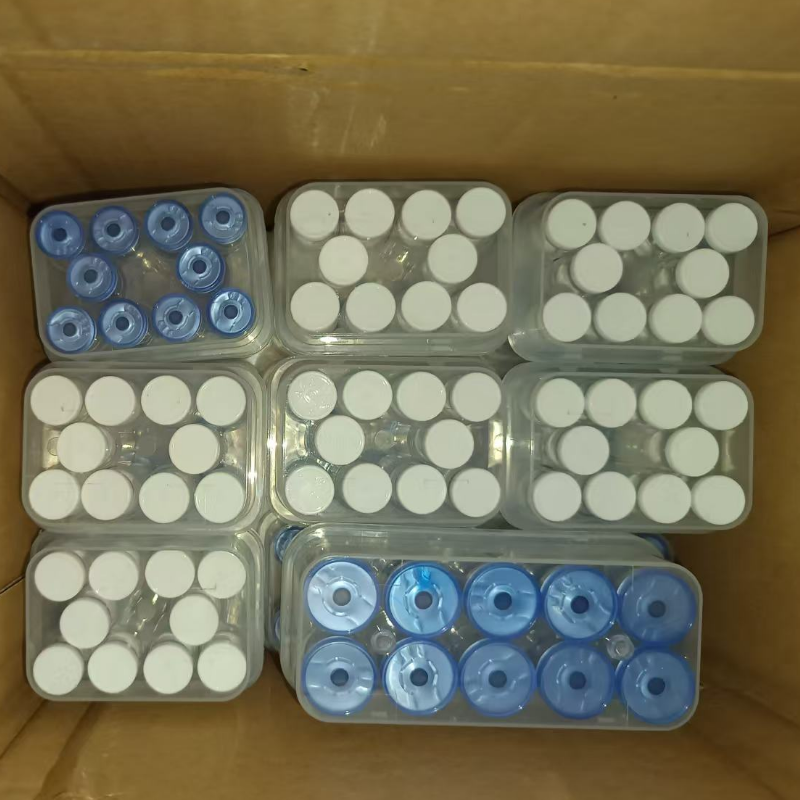-
Categories
-
Pharmaceutical Intermediates
-
Active Pharmaceutical Ingredients
-
Food Additives
- Industrial Coatings
- Agrochemicals
- Dyes and Pigments
- Surfactant
- Flavors and Fragrances
- Chemical Reagents
- Catalyst and Auxiliary
- Natural Products
- Inorganic Chemistry
-
Organic Chemistry
-
Biochemical Engineering
- Analytical Chemistry
-
Cosmetic Ingredient
- Water Treatment Chemical
-
Pharmaceutical Intermediates
Promotion
ECHEMI Mall
Wholesale
Weekly Price
Exhibition
News
-
Trade Service
*For medical professionals to read and refer to the 2022 Chinese Society of Clinical Oncology (CSCO) Colorectal Cancer Diagnosis and Treatment Guidelines, envolizumab is recommended as second-line and third-line microsatellite instability-high (MSI-H)/mismatch repair gene deficiency (dMMR).
) Treatment is preferred! On April 23-24, 2022, the CSCO Guidelines Conference will be held online
.
Experts and scholars from various tumor fields all over the country gathered online to witness the update of several guidelines and discuss the academic frontier research results
.
At the meeting on the 23rd, Professor Yuan Ying of the Second Affiliated Hospital of Zhejiang University School of Medicine shared the updated main points of the advanced colorectal cancer part of the colorectal cancer diagnosis and treatment guidelines
.
Envolizumab is the world's first PD-L1 monoclonal antibody in subcutaneous injection form, and will be approved by China's National Medical Products Administration (NMPA) in 2021 for unresectable or metastatic MSI-H/dMMR adult patients with advanced solid tumors The "2022 CSCO Colorectal Diagnosis and Treatment Guidelines" also included it into the second-line and third-line regimens of the palliative care group.
In view of this, the "medical community" specially invited Professor Yuan Ying from the Second Affiliated Hospital of Zhejiang University School of Medicine for an in-depth interpretation.
.
Professor Yuan Ying, who is recommended for PD-L1 monoclonal antibody therapy in the late-line treatment of MSI-H/dMMR population, shared: "Compared with previous years, this year's CSCO colorectal cancer guidelines have fewer updates, mainly in four aspects
.
First of all, the staging diagnosis of '(for those diagnosed with colonoscopy)' was recommended last year as 'enhanced CT of the chest/abdomen/pelvis', but considering that high-resolution plain CT has been widely used in the diagnosis of colorectal cancer patients with lung metastases, and Combined with medical insurance policies across the country, this year the section was revised to 'chest plain or enhanced CT and abdominal/pelvic enhanced CT'
.
Secondly, in terms of postoperative adjuvant therapy, for 'stage II low-risk (T3N0M0, dMMR)' The increase is described as 'T3N0M0, dMMR with or without risk factors
.
', it is clear that 'observation' is recommended for patients with or without high-risk factors
.
In addition, it has been previously suggested that patients with high-risk stage II in addition to T4 and low-risk stage III patients can consider 3 months of adjuvant chemotherapy with the CAPEOX regimen
.
This year, based on the results of the IDEA study, the CSCO colorectal cancer diagnosis and treatment guidelines revised this section, recommending that all high-risk stage II patients receive adjuvant chemotherapy with the CAPEOX regimen for 3 months after surgery
.
Third, in the immunotherapy of patients with advanced colorectal cancer, MSI-H/dMMR patients were recommended to receive pembrolizumab in the first-line regimen in the palliative care group, while those in the second- and third-line regimens in the palliative care group were recommended to receive no immune examination.
MSI-H/dMMR patients with point inhibitor were treated with PD-1 mAb
.
In this year's CSCO colorectal cancer guidelines, PD-L1 inhibitors were added as a level II recommendation for second- and third-line MSI-H/dMMR patients in the palliative care group
.
In the annotation, it is further clarified that there are currently more than 10 clinically available PD-1/PD-L1 inhibitors, including envolizumab, pembrolizumab, nivolumab, tislelizumab and Slulimumab has obtained indications for the late-line treatment of MSI-H/dMMR and can be used as the preferred option
.
Finally, in the postoperative follow-up section, this year's guidelines clearly pointed out that dynamic ctDNA monitoring can help early warning of postoperative recurrence and metastasis, but whether it should be routinely used for postoperative follow-up and guide treatment remains controversial
.
"Recommendation for rewriting the guideline for phase II clinical trials of envolimab," Professor Ying Yuan said: "This year, the recommendation of PD-L1 monoclonal antibody has been added to the second-line and third-line treatment of metastatic colorectal cancer MSI-H/dMMR population.
Based on the results of the multicenter, single-arm KN035-CN-006 Phase II study in China
.
In this study, nvolimumab demonstrated favorable efficacy in patients with MSI-H/dMMR colorectal cancer
.
The results of the study showed that the objective response rate (ORR) of 65 patients with MSI-H/dMMR colorectal cancer above second-line treatment was 43.
1%; 12-month progression-free survival (PFS) ) rate was 43.
7%, and the 12-month overall survival (OS) rate was 72.
9%[1], which was not inferior to other PD-1/PD-L1 mAbs in efficacy
.
Based on the results of this study, on November 24, 2021, the NMPA approved nvolimumab through the priority review process for the treatment of adult patients with unresectable or metastatic MSI-H/dMMR advanced solid tumors, including prior fluorouracil treatment Patients with advanced colorectal cancer with disease progression after treatment with oxaliplatin, oxaliplatin, and irinotecan and other advanced solid tumors with disease progression after prior therapy and no satisfactory alternative treatment options
.
"Envolizumab is convenient and safe to use.
Talking about the experience of Envolizumab, Professor Yuan Ying shared: "In addition to its efficacy as no less than other similar drugs, the way Envolizumab is administered Different from general immune checkpoint inhibitors, it is administered by subcutaneous injection, which is stable at room temperature, and has less restrictions on the injection site, so it can be easily administered
.
In addition, the subcutaneous injection mode of administration avoids the occurrence of intravenous infusion reactions and shortens the duration of administration.
The patient can complete the administration even at home or in the nearest community hospital, which significantly reduces the travel and fatigue of medical treatment.
The associated costs incurred and the risk of infusion reactions are avoided
.
In addition, in terms of safety, as a PD-L1 monoclonal antibody, nvolimumab retains the function of macrophage PD-L2 compared with PD-1 monoclonal antibody, so it can better reduce immune-related adverse reactions risk of occurrence
.
In the past, we often encountered serious complications caused by immunotherapy in clinical practice, while the number of immune pneumonia, immune enteritis, and immune nephritis caused by nvolimab was greatly reduced
.
"MSI-H/dMMR detection promotes the development of "precision immunity" and brings new treatment ideas.
In recent years, more and more PD-1/PD-L1 inhibitors are available for colorectal cancer patients.
The treatment decision-making of patients with colorectal cancer has become a new direction of discussion.
Professor Ying Yuan said: "In the second-line and third-line MSI-H/dMMR patients of palliative care, there are now no less than 10 PD-1/PD-L1 Monoclonal antibodies can be selected.
When making treatment decisions, most clinicians will choose according to the indications obtained by the drug and clinical research data
.
The phase II clinical trial of nvolimumab shows that the safety of envolizumab is better when the efficacy is not inferior to other similar drugs, and the mode of administration has also been innovated and upgraded
.
Therefore, in the CSCO colorectal cancer diagnosis and treatment guidelines this year, envolizumab is also recommended as one of the preferred immune drugs for MSI-H/dMMR patients
.
The detection of MSI-H/dMMR is not only very important for digestive tract tumors, MSI-H can appear in solid tumors of the whole body, and the incidence of MSI-H/dMMR in gynecological tumors such as endometrial cancer and ovarian cancer is even higher in the digestive tract.
above the tumor
.
Therefore, the detection of MSI-H/dMMR in such patients before treatment decision may lead to new treatment ideas
.
"Expert Profile Professor Yuan Ying Director of Medical Oncology Department of the Second Hospital of Zhejiang University, Professor, Chief Physician, Doctoral Supervisor Deputy Director of the Key Laboratory of Cancer Early Warning and Intervention of the Ministry of Education "Journal of Practical Oncology" Executive Deputy Editor-in-Chief and Director of the Editorial Department of the China Anti-Cancer Association Family Vice-chairman of the Hereditary Cancer Specialized Committee Member of the Standing Committee of the Chinese Anti-Cancer Association Cancer Clinical Chemotherapy Specialized Committee Member of the Standing Committee of the Chinese Anti-Cancer Association Colorectal Cancer Specialized Committee and leader of the Genetics Group Director of the Chinese Clinical Oncology Society (CSCO) Deputy Director of the CSCO Colorectal Cancer Expert Committee Member of the Standing Committee of the CSCO Gastric Cancer Expert Committee Chairman of the Colorectal Tumor Genetics Committee of the Chinese Medical Doctor Association Achievements: Published 200+ articles, 100+ SCI papers; 2018 Yunnan Provincial Science and Technology Progress Award (ranked third); 2016 First China Oncology Young Scientist Award; 2011 Zhejiang Provincial Youth Science and Technology Award; 2005 Second prize of National Science and Technology Progress Award (ranked fourth); First prize of Zhejiang Province Science and Technology Progress Award (ranked first) in 2003; Award
of the American Association of Colorectal Surgeons of Southern California in 1997.
Selected into the provincial "151" Talent Project in 2004 ( The second echelon) References: [1] Li J, Deng Y, Zhang W, etal.
Subcutaneous envafolimab monotherapy in patients with advanced defective mismatch repair/microsatellite instability high solid tumors[J].
J Hematol Oncol.
2021,14(1 ):95.
*This article is only used to provide scientific information to medical professionals and does not represent the views of this platform







